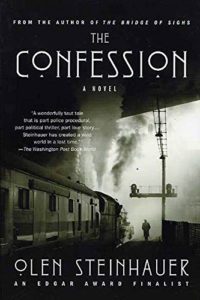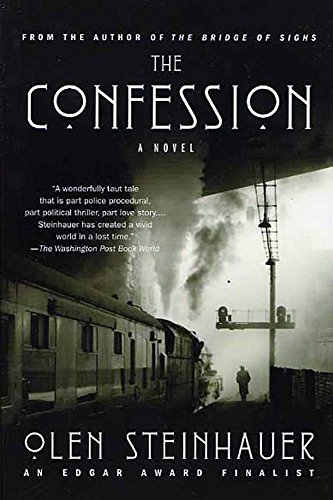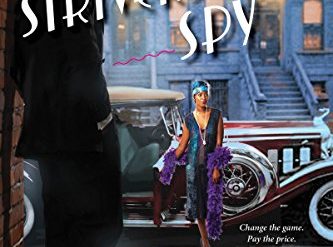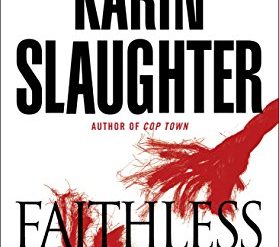
1956: Nikita Khruschev’s Secret Speech denouncing Stalin’s crimes; the Hungarian uprising and unrest in Poland it triggered; the British, French, and Israeli invasion of Egypt following Gamal Abdel Nasser’s nationalization of the Suez Canal; Sputnik’s launch. It was a watershed year, somewhat comparable to 1968 more than a decade later. In The Confession, we view the world of 1956 through the eyes and the troubled mind of Ferenc Kolyeszar, a policeman in a fictional Eastern European country somehow nestled among Hungary, Poland, Czechoslovakia, and Romania.
However, Kolyeszar is a novelist as well as a policeman, having published a well-received novel about his experiences as a soldier resisting the German occupation at the outset of World War II. Now 37 years old, he is writing The Confession to chronicle his shattering experiences at home and at work against the backdrop of fateful world events.
The Confession (Yalta Boulevard #2) by Olen Steinhauer ★★★★☆
The mounting ferocity of Communism in Eastern Europe
Kolyeszar’s story involves the unraveling of his marriage to Magda, the disappearance of a senior official’s young wife; the sometimes rocky relationships among Kolyeszar and Stefan, Emil, Leonek, and Brano, his fellow police officers in the District; Stefan’s reopened investigation into the murder of his partner immediately after the War; and the visit to the District of a KGB Colonel from Moscow named Kaminski. These parallel story lines weave in and out of one another, converging in a climactic end-game that brings a just conclusion to The Confession. Along the way we become immersed in the endless strain as Communist rule solidifies in Eastern Europe with mounting ferocity. This is an engrossing and skillfully written story.
An insightful history of the region in five brilliant novels
Olen Steinhauer’s The Confession is the second in a cycle of five novels set a decade apart from one another about the men of the District. Its predecessor, The Bridge of Sighs, was written from the perspective of Kolyeszar’s colleague Emil Brod and took place in 1948-49. The subsequent three novels carry the story forward to the fall of Communism in 1989. To my mind, judging from what I’ve read so far, this five-book cycle is as insightful a history of Eastern Europe under Communism as any history of the period.
For additional reading
I’ve reviewed all five novels in this series at Olen Steinhauer’s brilliant Yalta Boulevard cycle set in Eastern Europe.
You might also enjoy my posts:
- Top 10 mystery and thriller series
- 20 excellent standalone mysteries and thrillers
- 20 outstanding detective series from around the world
For an abundance of great mystery stories, go to Top 20 suspenseful detective novels. And if you’re looking for exciting historical novels, check out Top 10 historical mysteries and thrillers reviewed here.
And you can always find my most popular reviews, and the most recent ones, plus a guide to this whole site, on the Home Page.



























